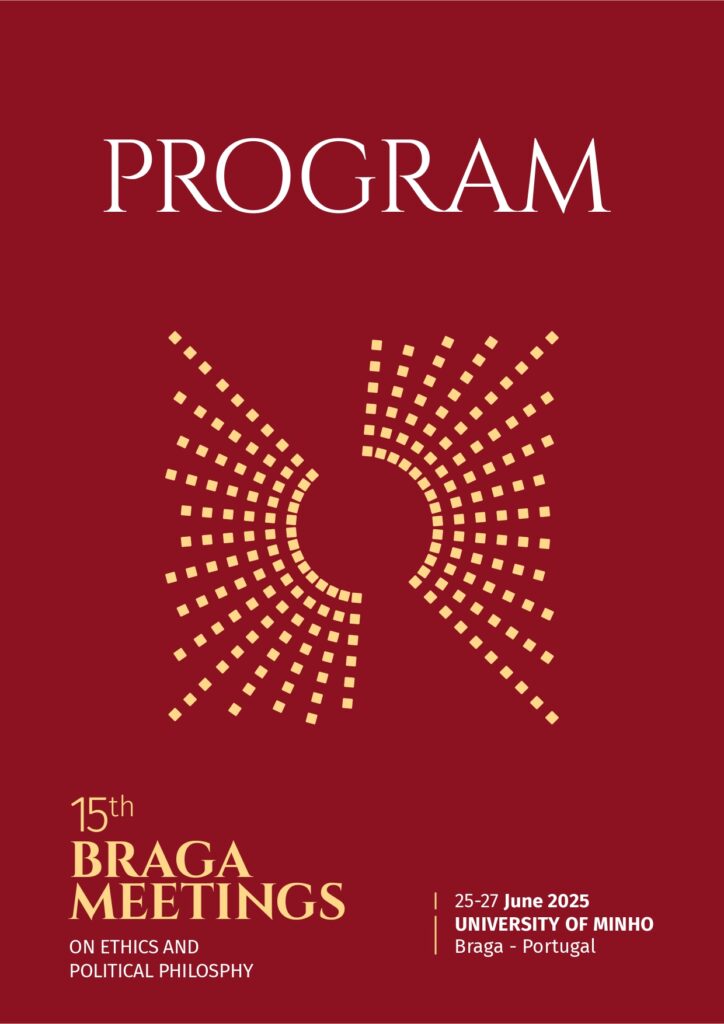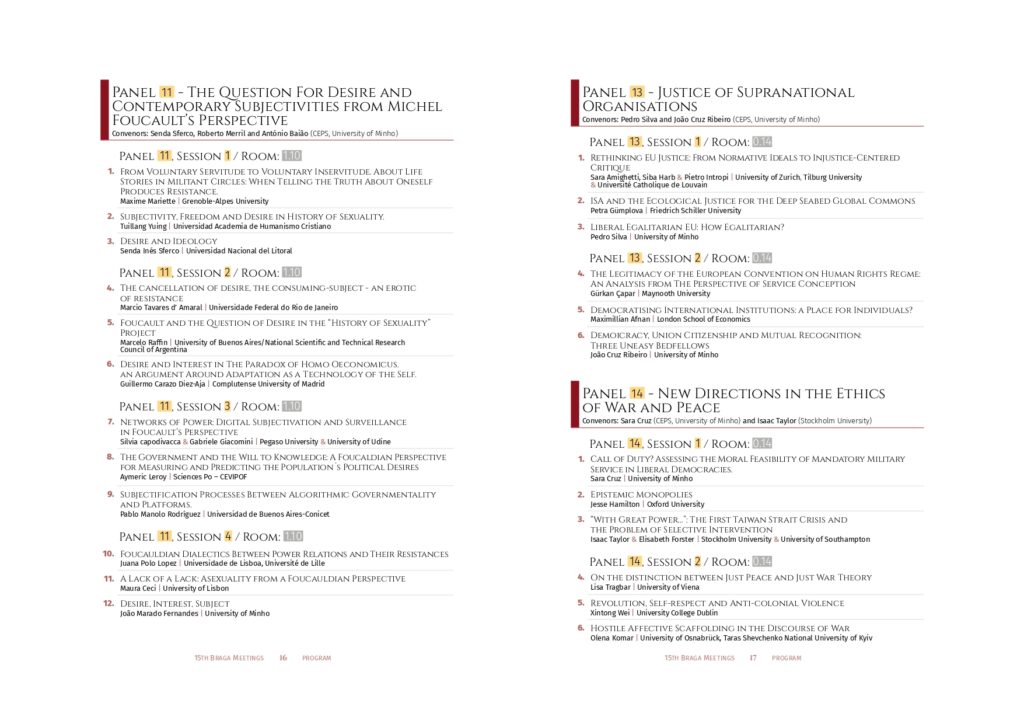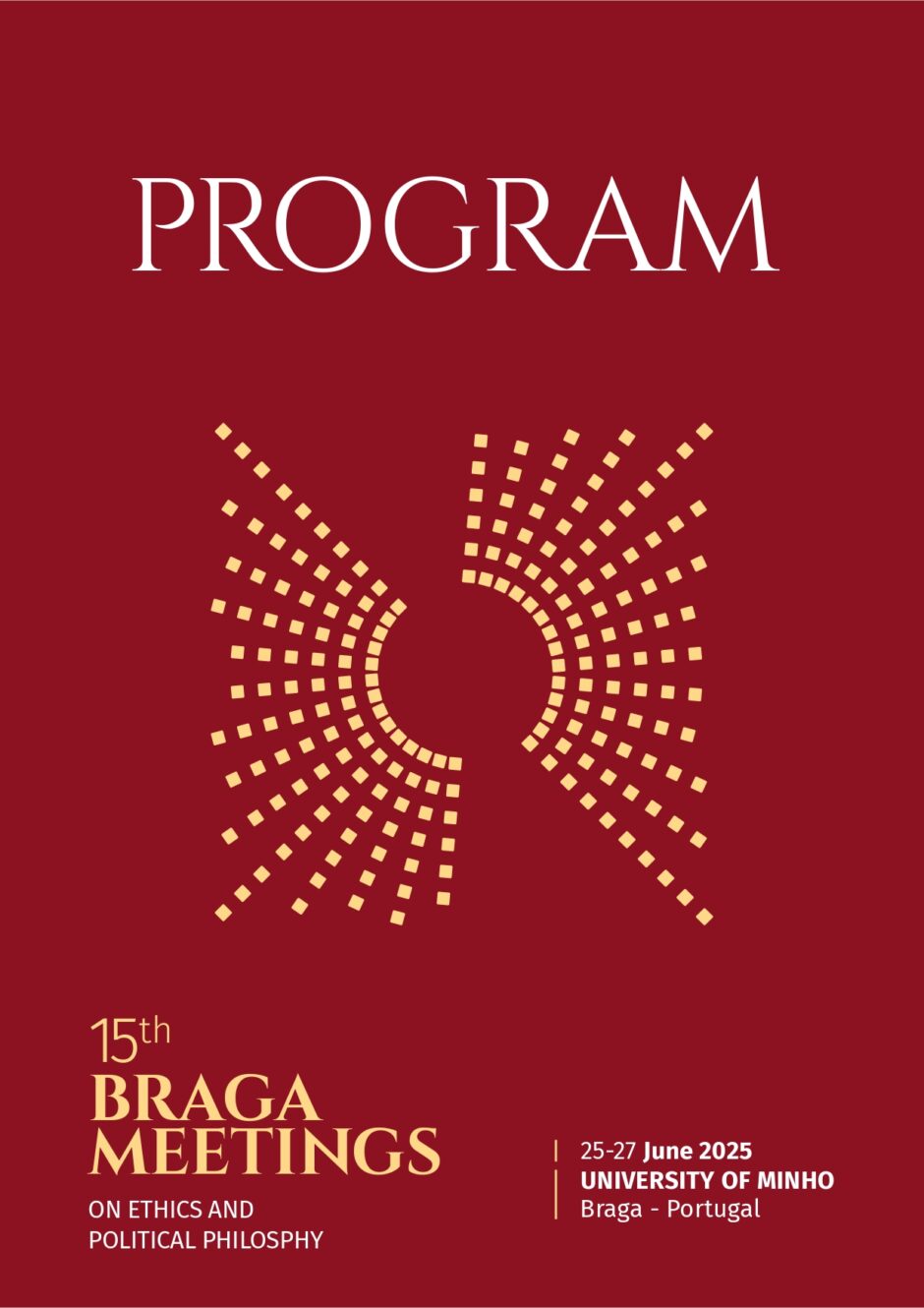international conference, 26th June 2025

Panel 11
Session 3
Room: 1.10
Networks of power: digital subjectivation and surveillance in Foucault’s perspective
Silvia Capodivacca and Gabriele Giacomini | Pegaso University, University of Udine
This paper examines the contemporary dynamics of disciplinary power in the digital age through a Foucauldian lens, reflecting on the convergence of surveillance, datafication, and algorithmic control. Building on Foucault’s analysis of biopolitics and the dispositif, we trace how mechanisms of power have evolved from institutional control to a more diffuse but pervasive form of subjectivation through digital networks.
The study focuses on the shift from classical disciplinary institutions—such as prisons and schools—to digital ecosystems where personal data is mined and leveraged to shape behavior and influence decisions. We explore how Foucault’s insights into the panopticon, confession, and normalization find renewed relevance in understanding the architectures of digital surveillance capitalism, where human actions are not only observed but preemptively shaped by predictive algorithms. This evolution echoes Foucault’s assertion that power operates not through repression alone but by configuring fields of visibility and modes of self-relation.
By analyzing recent examples of digital surveillance practices—including psychographic profiling, predictive policing, and behavioral microtargeting—we highlight how neoliberal societies foster forms of digital governance that intensify the management of individual subjectivities. These practices illustrate the emergence of what could be termed algorithmic discipline, where the subject is rendered both transparent and governable through their digital traces. The implications are profound: while Foucault envisioned disciplinary societies as enclosed and institutional, digital infrastructures transcend these spatial limitations, creating an environment where surveillance is embedded into everyday interactions.
Furthermore, this paper interrogates how data-centric mechanisms shape subjectivities through a regime of veridiction, compelling individuals to produce “truths” about themselves through digital interfaces. Drawing connections with Foucault’s critique of power/knowledge relations, we discuss how truth-production is increasingly outsourced to algorithmic systems, raising concerns about autonomy, opacity, and the ethical boundaries of digital governance.
Lastly, we address how resistance can be conceptualized within such an environment. While Foucault emphasized that resistance is immanent to power, the paper considers the potential for subversion through digital literacy, collective mobilization, and the reclamation of data sovereignty. These strategies call for a renewed focus on ethical subjectivation, where individuals and communities reclaim their agency against the reductive frameworks of data commodification.
By historicizing the current digital regime, we aim to contribute to the broader conference inquiry into the intersections of power, subjectivity, and technology, fostering a critical dialogue on the socio-political stakes of life in the digital age. We identify at least two key aspects that resonate with the conference’s inquiry into the relationship between power, subjectivity, and truth:
- Neoliberalism and the normalization of desire: Neoliberal capitalism functions as a regulator of desire by harnessing behavioral data, fostering marketable desires, and encouraging a “second nature” that aligns personal needs with consumption patterns. Digital technologies act as normative forces, steering subjectivities through algorithmic feedback loops and intensifying forms of self-surveillance and identity commodification.
- Technologies of self and AI’s role in the reconfiguration of subjectivity: We reflect on the transformation of Foucault’s power triangles—veridiction, governmentality, and self-techniques—within the era of data and platforms. How do artificial intelligence and psychographic microtargeting reshape ethical possibilities for self-relation and collectivity?
Keywords: Algorithmic Discipline; Digital Surveillance; Biopolitics and Subjectivity; Power/Knowledge and Veridiction



